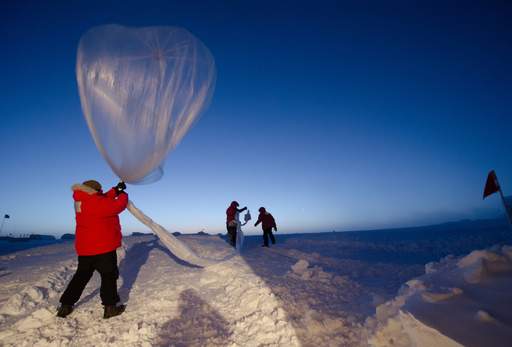
Cette page n'est pas disponible en français
Choisissez langues
Anglais,
Allemand
We are in the middle of one great experiment, countless experiments. Work that has gone virtual, from everyone’s home office. Our limited motion range – we are more local than we have been in a long time. The new cohesion. The complete breakdown of business for some - what do I do now with my time?
You can see all of this as scary and dangerous, and long for the moment when everything will return to normal. At the same time, the new normal after Corona will be different from what it was before.
There is no way back, because we are experimenting. The very nature of experiments is that they develop an irresistible power for change. You can lean back and look at it unfolding. Or we can get involved and actively use the involuntary experiments as a space for innovation. At this moment, I am seeing impressive things that are starting to happen where people start to embrace, and then shape the new reality.
Experimenting works
Experiments, I believe, unfold their effect via three mechanisms:
- Experiments make us active contributors, and researchers. If you start to look at what is happening as an experiment, then you automatically put yourself in an active position. You do that by first seeing what you do and think at the moment as ‘input’ into an experiment, as trying out. Then, you are curious about what is the result of your actions. You are learning from your effect for the next experiment. The essence of this simple cycle of active design and research is that you are creating the space to make your own impact visible – where the impact of what you do in everyday life is often so difficult to see.
In normal mode, we often simply do what we always do – the stand-up round with the team, the meeting with the board, setting up a new initiative or campaign. You do it ‘as usual’, efficiently, which has a pretty good chance of working. But do you know exactly what the effect of the team meeting is, how it works to motivate, steer, coordinate among team members? How is the board’s session a step towards achieving the organization’s goals? What is the exact working mechanism of your initiative? – The more complex the organization, typically, the more invisible the impact of individual action.
Experiments create a deliberate space to examine the effect of your actions. They connect you with your personal impact – and challenge you to learn. This combination is for many of us irresistible.
- Experiments encourage trial-and-error. If you experiment, you do not need to know for sure. You can try out. And only if you admit to yourself that you don’t know exactly yet, will you find out new things.
- Experiments create experiences of possible futures. Until now, it was unthinkable for the board meeting to take place through video conference – now there is no alternative. It creates a new experience of possibility – because even if the meeting is online now, it will not be a complete disaster. This experience provides a more differentiated assessment of the advantages and disadvantages of such an online meeting. It replaces the concept of ‘impossible’ with ‘in these instances, under these conditions, productive’. Nothing develops greater power of change than the positive experience of an alternative to the status quo.
What do we learn from unintentional experiments?
Everyone will learn from their own experiments, in all the diversity of experiences. At the same time, there are some insights that I have come across several times in the last few days:
- Working from home does not lead to the collapse of the organization: in contradiction to the expectation of some, it is amazing how much work is getting done, how productive the new setting is, even when people are not yet very practiced in it. The problems that come up are more technical - access to files and work tools.
- The increased space does not lead to chaos but to creativity: in many places, exercising managerial control has become more difficult. The concern that this will lead to unreasonable, chaotic, 'everybody does what they want' situations is not supported by the first-sight evidence. Rather, interesting new ideas and initiatives are emerging.
- The collapse has a purifying effect: in many places we have gone from hundred to zero in a very short time. On a personal and organizational level, I see some people using this opportunity for an intentional radical change. When, if not now, will it be possible to end the product line that was no longer creating value anyway? When, if not now, can one reinvent one’s business model, using the chance that it is at rock-bottom anyway? When, if not now, can anyone redefine their personal priorities?
What do we learn about experimenting?
Just because we are trying things out now, doesn't automatically make what we do productive. In my opinion, we are also learning what it takes to experiment successfully:
- The space of limited consequences: no creativity arises where the existential fears are too great, the possible losses life-threatening, the consequences of mistakes incalculable. Those who turn the current situation into an opportunity are working to create space - which also means limiting the consequences of possible failure. These ‘consequences’ refer to both the very practical - if there is no more money on the account, then it is not there and real problems arise - and the perceptions - if you focus only on your worries, on what could go wrong, then these will also become larger than life.
- Let a thousand flowers blossom: If you want certainty and a clear answer quickly - "Is home office a good idea? – you are in danger of missing the essence. Zooming in on details helps. Because something works in one place that doesn't work somewhere else. In one place a solution is found for a problem, in the second place it is solved differently. It is precisely the variety of simultaneous approaches and solutions that accelerate learning. And only those who can look at it with inquiring curiosity will discover the new.
- The power of connection: experiments in isolation creat limited movement. Yet, what we are currently experiencing, is the power of connection: On all kinds of platforms, within organizations and even more bridging organizational borders, information and experiences are shared in the (involuntary) experiments. The speed with which new insights, tips and tricks, ideas and perspectives are shared is breathtaking.
In Chinese, the character for "crisis" is said to consist of the signs for "danger" and "opportunity". How about moving from danger to opportunity by experimenting?
